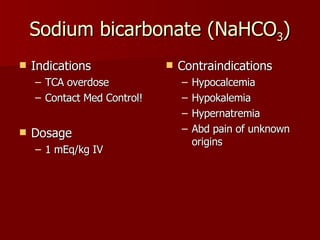
Substance Abuse CME: Enhancing Expertise in Addiction Treatment
Continuing Medical Education (CME) focused on substance abuse is crucial for healthcare professionals seeking to enhance their expertise in addiction treatment. The escalating opioid crisis and the increasing prevalence of substance use disorders underscore the urgent need for physicians, nurses, and other healthcare providers to stay abreast of the latest evidence-based practices. This article delves into the significance of substance abuse CME, the topics covered, the benefits of participation, and resources for finding high-quality educational opportunities.
The Critical Need for Substance Abuse Education
Substance abuse and addiction represent a significant public health challenge. The consequences extend beyond the individual, impacting families, communities, and healthcare systems. The complexity of addiction requires a nuanced understanding of its biological, psychological, and social underpinnings. Healthcare professionals need comprehensive training to effectively screen, diagnose, and treat patients with substance abuse disorders.
Furthermore, the landscape of addiction treatment is constantly evolving. New medications, therapeutic approaches, and harm reduction strategies are continually being developed and refined. Substance abuse CME ensures that healthcare providers remain current with these advancements, enabling them to deliver the best possible care.
Key Topics Covered in Substance Abuse CME
High-quality substance abuse CME programs cover a wide range of topics relevant to addiction treatment. These may include:
- Pharmacology of Addiction: Understanding how different substances affect the brain and body, including the mechanisms of action, metabolism, and potential for dependence.
- Screening and Assessment: Learning how to effectively screen patients for substance abuse disorders using validated tools and techniques.
- Diagnosis: Applying the Diagnostic and Statistical Manual of Mental Disorders (DSM-5) criteria to accurately diagnose substance abuse disorders.
- Evidence-Based Treatment Approaches: Exploring a variety of treatment modalities, including medication-assisted treatment (MAT), cognitive behavioral therapy (CBT), motivational interviewing (MI), and contingency management.
- Medication-Assisted Treatment (MAT): Understanding the role of medications like buprenorphine, naltrexone, and methadone in treating opioid use disorder and alcohol use disorder.
- Pain Management and Opioid Prescribing: Learning strategies for managing chronic pain while minimizing the risk of opioid misuse and addiction.
- Co-occurring Disorders: Addressing the complex interplay between substance abuse and other mental health conditions, such as depression, anxiety, and PTSD.
- Harm Reduction Strategies: Implementing harm reduction approaches, such as naloxone distribution and safe injection sites, to minimize the negative consequences of substance abuse.
- Relapse Prevention: Developing strategies to help patients maintain sobriety and prevent relapse.
- Ethical and Legal Considerations: Navigating the ethical and legal challenges associated with addiction treatment, including patient confidentiality, informed consent, and mandatory reporting requirements.
Benefits of Participating in Substance Abuse CME
Engaging in substance abuse CME offers numerous benefits for healthcare professionals:
- Improved Patient Outcomes: Enhanced knowledge and skills translate into better patient care and improved treatment outcomes.
- Increased Confidence: CME empowers healthcare providers to confidently address substance abuse issues in their practice.
- Enhanced Professional Reputation: Demonstrating a commitment to ongoing learning enhances professional credibility and reputation.
- Fulfillment of Licensing Requirements: Many states require healthcare professionals to complete a certain number of CME credits related to substance abuse as part of their licensing requirements.
- Stay Current with Best Practices: CME keeps healthcare providers informed about the latest advancements in addiction treatment.
- Networking Opportunities: CME events provide opportunities to connect with colleagues and experts in the field of addiction medicine.
Finding High-Quality Substance Abuse CME Opportunities
Several resources can help healthcare professionals find high-quality substance abuse CME opportunities:
- Professional Organizations: Organizations like the American Society of Addiction Medicine (ASAM), the American Academy of Addiction Psychiatry (AAAP), and the National Institute on Drug Abuse (NIDA) offer a variety of CME programs.
- Medical Schools and Universities: Many medical schools and universities offer CME courses and conferences on substance abuse.
- Online CME Providers: Numerous online platforms offer accredited substance abuse CME courses that can be completed at one’s own pace.
- State Medical Boards: State medical boards often maintain lists of approved CME providers.
- Hospital Systems: Many hospital systems offer internal CME programs for their staff.
The Future of Substance Abuse CME
The future of substance abuse CME is likely to be shaped by several trends:
- Increased Focus on Telemedicine: Telemedicine is playing an increasingly important role in addiction treatment, and CME programs will need to address the unique challenges and opportunities of providing care remotely.
- Integration of Technology: Technology-based interventions, such as mobile apps and wearable sensors, are becoming more common in addiction treatment, and CME programs will need to incorporate these tools.
- Personalized Learning: CME programs are likely to become more personalized, with content tailored to the individual learner’s needs and preferences.
- Emphasis on Interprofessional Education: Addiction treatment often involves a team of healthcare professionals, and CME programs will need to promote interprofessional collaboration.
- Addressing Stigma: A continued focus on reducing the stigma associated with substance abuse is critical. CME can play a role in educating healthcare professionals about the importance of using person-first language and providing compassionate care.
Conclusion
Substance abuse CME is an essential investment for healthcare professionals seeking to enhance their knowledge and skills in addiction treatment. By staying current with the latest evidence-based practices, healthcare providers can improve patient outcomes, increase their confidence, and contribute to the fight against substance abuse. With the ever-evolving landscape of addiction treatment, ongoing education is paramount to providing effective and compassionate care. Investing in substance abuse CME not only benefits individual practitioners but also strengthens the entire healthcare system’s ability to address this critical public health challenge. [See also: Opioid Addiction Treatment Options] [See also: Understanding Addiction as a Brain Disease] [See also: The Role of Therapy in Addiction Recovery] By prioritizing continuous learning, healthcare professionals can play a vital role in helping individuals overcome addiction and lead healthier, more fulfilling lives. The need for well-trained professionals in the field of substance abuse is ever-present, making substance abuse CME a valuable and necessary pursuit.
